At the southern tip of the Korean Peninsula sits the seaside town of Goheung in Jeollanam-do Province. Then even further southward lies the little island of Sorokdo. For many years, the island was populated by people who had leprosy, and so visitors from the mainland generally didn't want to, or couldn't, travel to the place.
Leprosy, or Hansen's disease, has been curable for many years and anyone can now go or leave Sorokdo Island, which is technically no longer even an island since there's now a bridge connecting the mainland and the island. For Sorokdo Island to gain all this, though, required a huge amount of effort by a large number of people.
In 1962, two non-Korean nurses arrived on Sorokdo Island. Margreth Pissarek and Marianne Stoeger, graduates of a nursing school in Innsbruck, Austria, came to this small Korean island to provide medical services. Spending half of their entire lives there, though, wasn't exactly what they had on their minds when they arrived.
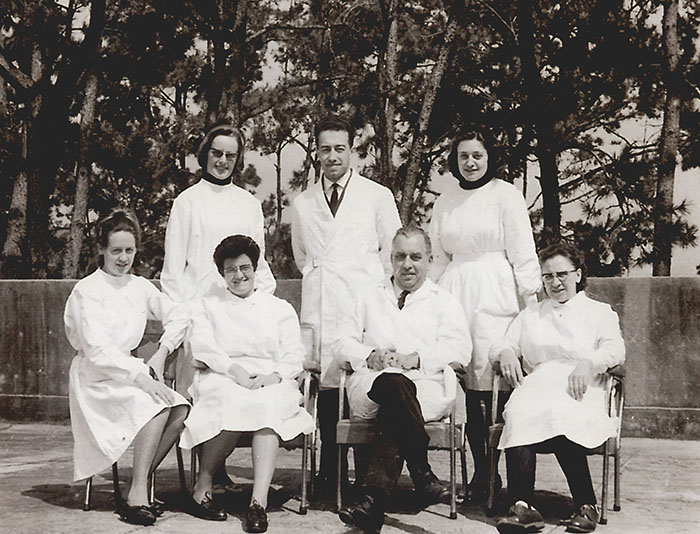
When they arrived, they were faced with nearly 6,000 patients and about 200 children who were isolated from their patient parents. Any thoughts about their work contract or working conditions went immediately out the window. Waking up at 5 a.m., the two spent every day taking care of patients. They ate together with the patients, they administered medicine to the patients' skin with bare hands, and this was still ignorant days when professional doctors didn't willingly touch a patient's skin for fear of being infected.
The two Austrian nurses not only corrected many misbeliefs about leprosy, but also sought some medicine and other amenities for the patients and their children. They asked families and acquaintances to send medicine, while getting nutritional supplements and milk powder for the children who suffered from malnutrition. They invited doctors from overseas to perform surgeries and willingly paid for the medical facilities and for patients' physical therapy. For children isolated from their parents, they built a childcare center. They even made clothes for the kids by hand.
After all these efforts, the number of patients on the island dropped to about 3,000. The medical team that had been providing services together with the two nurses left in 1971, but the two nurses stayed on the island. As their efforts became more and more well known, doctors and nurses nationwide began to help them. Still, they didn't want to accept letters or certificates of appreciation, and returned most of them. On the very rare occasions when they did accept such an honor, they used the prize money to help cured patients leave the island and settle on the mainland.
Time passed and the number of patients dwindled to about 600, down from around 6,000. Over the decades, the young 20-something nurses aged into ordinary women that can be seen in Korea's rural seaside towns. Their families in Austria assumed that they would only ever return to Europe as ashes in an urn.
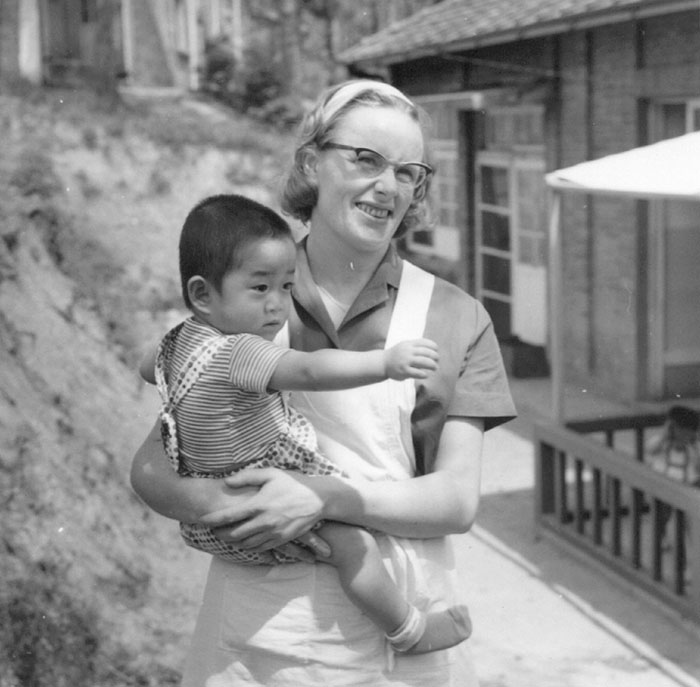
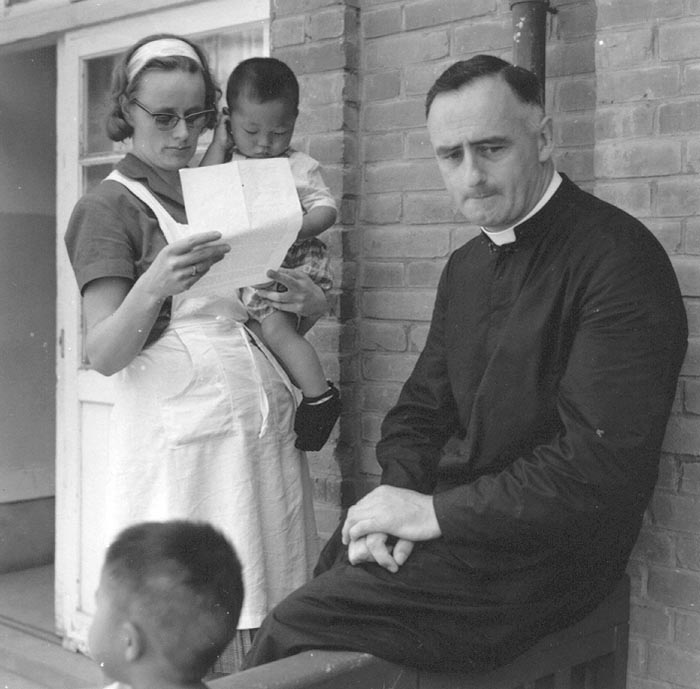
However, in November 2005, Pissarek and Stoeger did return to Austria to visit their families. They left Sorokdo silently, without any goodbye or ceremony, an island where they spent the better part of 40 years of their lives. In their hands, they only carried the worn-out pieces of luggage that they had brought there 43 years ago.
They did, however, write a short letter to the people of Sorokdo Island.
"We've been talking with our colleagues, saying that we might have to leave before we get too old and turn into some kind of burden. Well, we thought it was time to turn our talk into action. Thank you for the great amount of respect and love that you have given us, and please forgive us if we, as non-Koreans, ever hurt you."
It was a humble goodbye, leaving without letting the people know. However, the people of the island would be sad if they knew the two Austrians were to leave, and that would then, in turn, make the two of them even sadder. When their departure was discovered, the islanders stopped in their tracks, halting their daily routine, and prayed for the two.
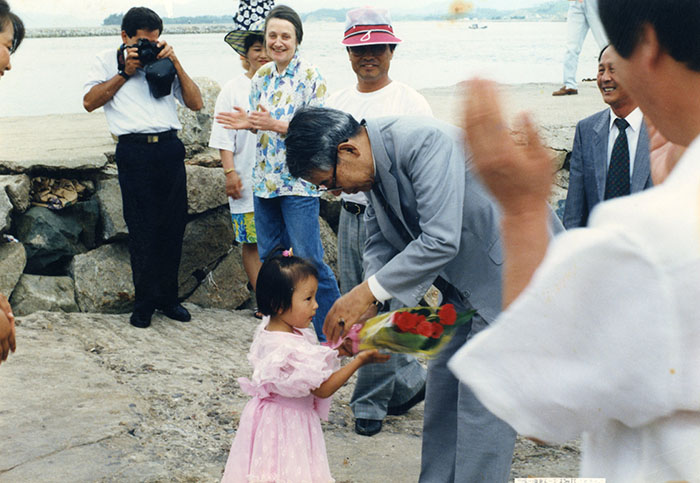
Eleven years have passed since their departure.
In 2016, the Goheung-gun County Office announced that it would put forth the names of Pissarek and Stoeger, the two nurses, as nominees for the Nobel Peace Prize. The county will also film a documentary that looks back on the two's lives on Sorokdo Island. This is part of celebrations marking the 100th anniversary of the Sorokdo National Hospital, which lands on May 17 this year. The nurses' homes and few personal possessions will become official registered cultural heritage items, and a memorial hall will be built for the two of them. For the hospital's 100th anniversary party, Stoeger will revisit Sorokdo Island after 11 years. Unfortunately, Pissarek is not able to attend due to health concerns.
"Be nice and humble." The message is still on the door of their Sorokdo house, and that was their belief about life. Putting up a nice message on the wall and being reminded of it is not particularly difficult. However, living according to the message's advice can be particularly difficult. Stoeger and Pissarek turned their beliefs into action. This is why the people of Sorokdo Island specifically and Goheung more broadly cannot forget the two.
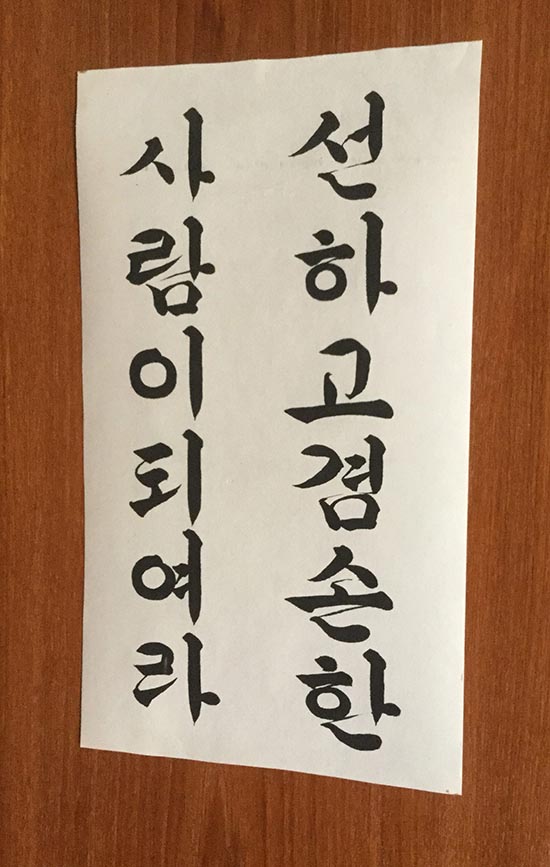
By Chang Iou-chung
Korea.net Staff Writer
Photos: Goheung-gun County Office
icchang@korea.kr
Leprosy, or Hansen's disease, has been curable for many years and anyone can now go or leave Sorokdo Island, which is technically no longer even an island since there's now a bridge connecting the mainland and the island. For Sorokdo Island to gain all this, though, required a huge amount of effort by a large number of people.
In 1962, two non-Korean nurses arrived on Sorokdo Island. Margreth Pissarek and Marianne Stoeger, graduates of a nursing school in Innsbruck, Austria, came to this small Korean island to provide medical services. Spending half of their entire lives there, though, wasn't exactly what they had on their minds when they arrived.

Margreth Pissarek (back row, left) and Marianne Stoeger (back row, right) pose for a picture with a Belgian medical team from the Damien Foundation in 1970. Pissarek and Stoeger, who first came to Sorokdo Island in 1962 and spent 40-something years there taking care of people with leprosy, are called 'living angels' by the residents of Sorokdo Island.
When they arrived, they were faced with nearly 6,000 patients and about 200 children who were isolated from their patient parents. Any thoughts about their work contract or working conditions went immediately out the window. Waking up at 5 a.m., the two spent every day taking care of patients. They ate together with the patients, they administered medicine to the patients' skin with bare hands, and this was still ignorant days when professional doctors didn't willingly touch a patient's skin for fear of being infected.
The two Austrian nurses not only corrected many misbeliefs about leprosy, but also sought some medicine and other amenities for the patients and their children. They asked families and acquaintances to send medicine, while getting nutritional supplements and milk powder for the children who suffered from malnutrition. They invited doctors from overseas to perform surgeries and willingly paid for the medical facilities and for patients' physical therapy. For children isolated from their parents, they built a childcare center. They even made clothes for the kids by hand.
After all these efforts, the number of patients on the island dropped to about 3,000. The medical team that had been providing services together with the two nurses left in 1971, but the two nurses stayed on the island. As their efforts became more and more well known, doctors and nurses nationwide began to help them. Still, they didn't want to accept letters or certificates of appreciation, and returned most of them. On the very rare occasions when they did accept such an honor, they used the prize money to help cured patients leave the island and settle on the mainland.
Time passed and the number of patients dwindled to about 600, down from around 6,000. Over the decades, the young 20-something nurses aged into ordinary women that can be seen in Korea's rural seaside towns. Their families in Austria assumed that they would only ever return to Europe as ashes in an urn.


Stoeger takes care of patients' children on Sorokdo Island.
However, in November 2005, Pissarek and Stoeger did return to Austria to visit their families. They left Sorokdo silently, without any goodbye or ceremony, an island where they spent the better part of 40 years of their lives. In their hands, they only carried the worn-out pieces of luggage that they had brought there 43 years ago.
They did, however, write a short letter to the people of Sorokdo Island.
"We've been talking with our colleagues, saying that we might have to leave before we get too old and turn into some kind of burden. Well, we thought it was time to turn our talk into action. Thank you for the great amount of respect and love that you have given us, and please forgive us if we, as non-Koreans, ever hurt you."
It was a humble goodbye, leaving without letting the people know. However, the people of the island would be sad if they knew the two Austrians were to leave, and that would then, in turn, make the two of them even sadder. When their departure was discovered, the islanders stopped in their tracks, halting their daily routine, and prayed for the two.

Pissarek helps welcome Cardinal Stephen Kim Sou-hwan during the late cardinal's visit to Sorokdo Island.
Eleven years have passed since their departure.
In 2016, the Goheung-gun County Office announced that it would put forth the names of Pissarek and Stoeger, the two nurses, as nominees for the Nobel Peace Prize. The county will also film a documentary that looks back on the two's lives on Sorokdo Island. This is part of celebrations marking the 100th anniversary of the Sorokdo National Hospital, which lands on May 17 this year. The nurses' homes and few personal possessions will become official registered cultural heritage items, and a memorial hall will be built for the two of them. For the hospital's 100th anniversary party, Stoeger will revisit Sorokdo Island after 11 years. Unfortunately, Pissarek is not able to attend due to health concerns.
"Be nice and humble." The message is still on the door of their Sorokdo house, and that was their belief about life. Putting up a nice message on the wall and being reminded of it is not particularly difficult. However, living according to the message's advice can be particularly difficult. Stoeger and Pissarek turned their beliefs into action. This is why the people of Sorokdo Island specifically and Goheung more broadly cannot forget the two.

'Be nice and humble.' A message written by an acquaintance of the two nurses, and which could be said to be their life motto, is still hanging from the wall of the Sorokdo home where they lived for many years.
By Chang Iou-chung
Korea.net Staff Writer
Photos: Goheung-gun County Office
icchang@korea.kr